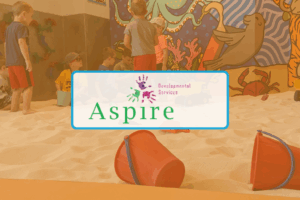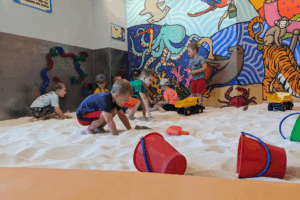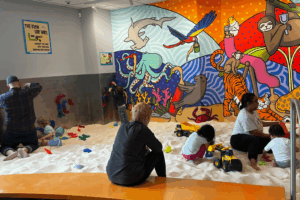Teaching Sharing and Cooperation Through Interactive Sandbox Play: Young children should be taught the value of sharing and cooperation as a component of their social and emotional development. While formal lessons can be effective, experiential learning through play is typically the most effective and engaging way for children to acquire these skills.
At Sandmagination, we understand the powerful impact of interactive sandbox play on learning teamwork, patience, and communication in an engaging and interactive environment. Discover how sandbox play can help children learn to share, collaborate, and make friends through play!
1. Encourages Turn-Taking & Patience
In a sandbox setting, children naturally have moments when they must:
- Wait their turn for a shovel, bucket, or favorite toy
- Practice patience while another child finishes their activity
- Develop self-control and empathy as they learn to share space
Learning turn-taking allows children to become socially aware and prepares them for successful interactions in school and life.
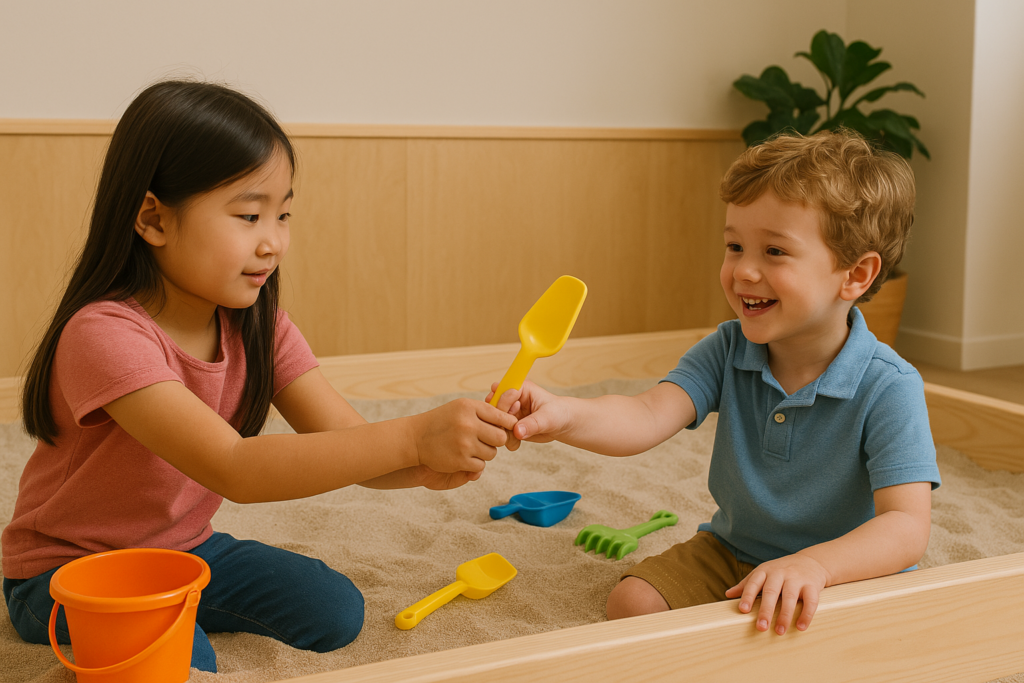
2. Fosters Teamwork Through Cooperative Play
Sandbox play is a great way for children to work together toward a common goal, such as:
- Building a sandcastle
- Digging a tunnel
- Creating an imaginative play scenario
Through collaboration, kids learn:
- Problem-solving
- Compromise
- Leadership skills
These experiences naturally reinforce teamwork in an enjoyable way!
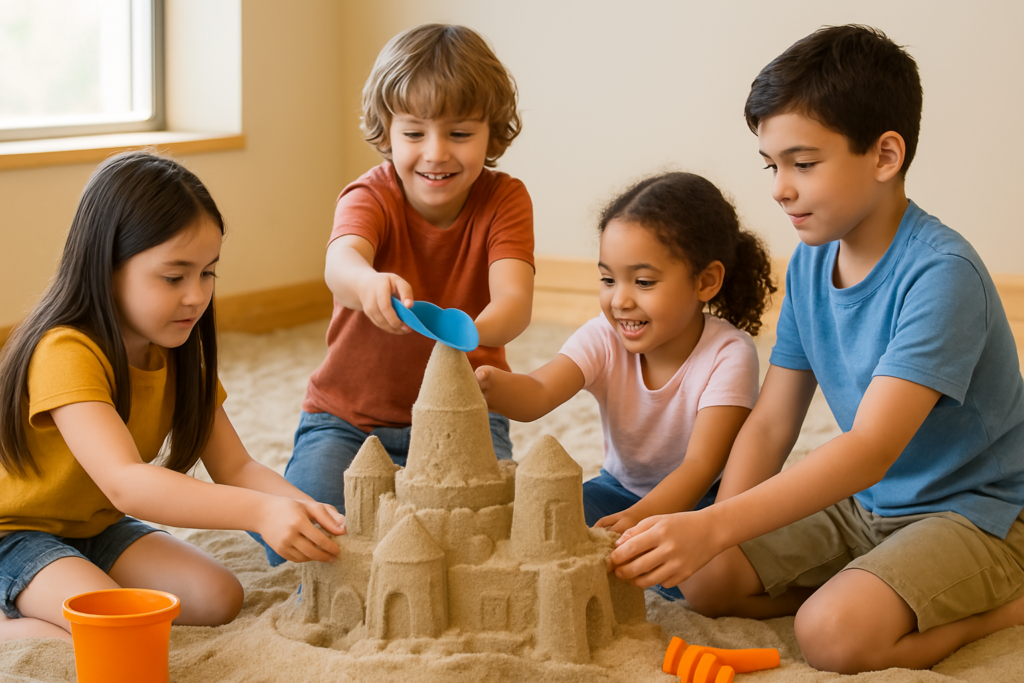
3. Develops Conflict Resolution Skills
Disagreements happen—even in the sandbox! But sandbox play provides a safe space for children to:
- Negotiate and problem-solve together
- Take turns deciding who goes first
- Find fair ways to share space and toys
These experiences prepare children for handling conflicts in a positive, constructive manner.
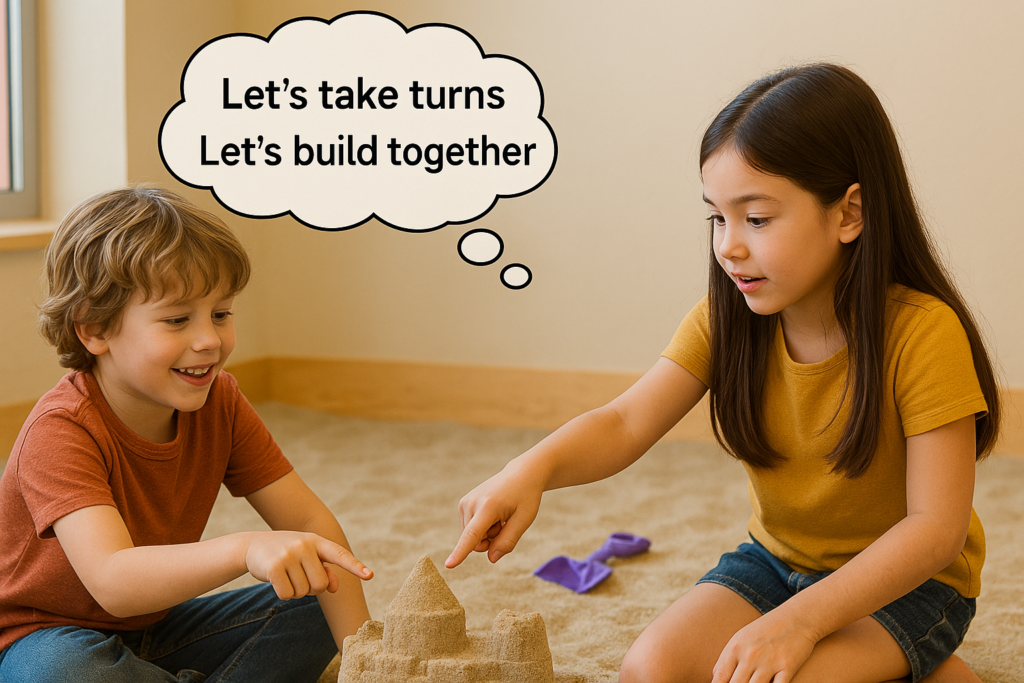
4. Reinforces the Concept of Sharing
Sharing is one of the hardest lessons for young children to master, but sandbox play offers frequent chances to practice.
- Sharing a bucket with a friend
- Building something together
- Taking turns with sandbox tools
Children learn firsthand that sharing makes play more fun and rewarding!
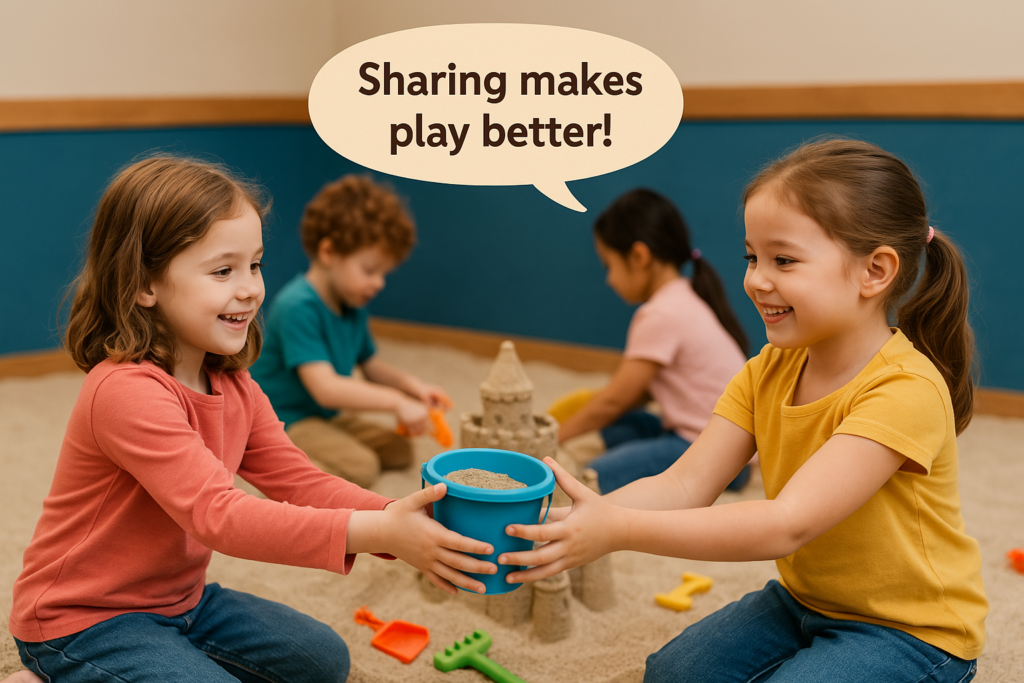
5. Improves Communication & Expressive Language
Engaging in cooperative sandbox play encourages children to:
- Share their ideas (“Let’s build a moat!”)
- Listen to their peers (“Can I help with the tower?”)
- Problem-solve through language(“We need more sand over here!”)
These interactions strengthen verbal and nonverbal communication skills, which enables children to be not only better speakers but also listeners.
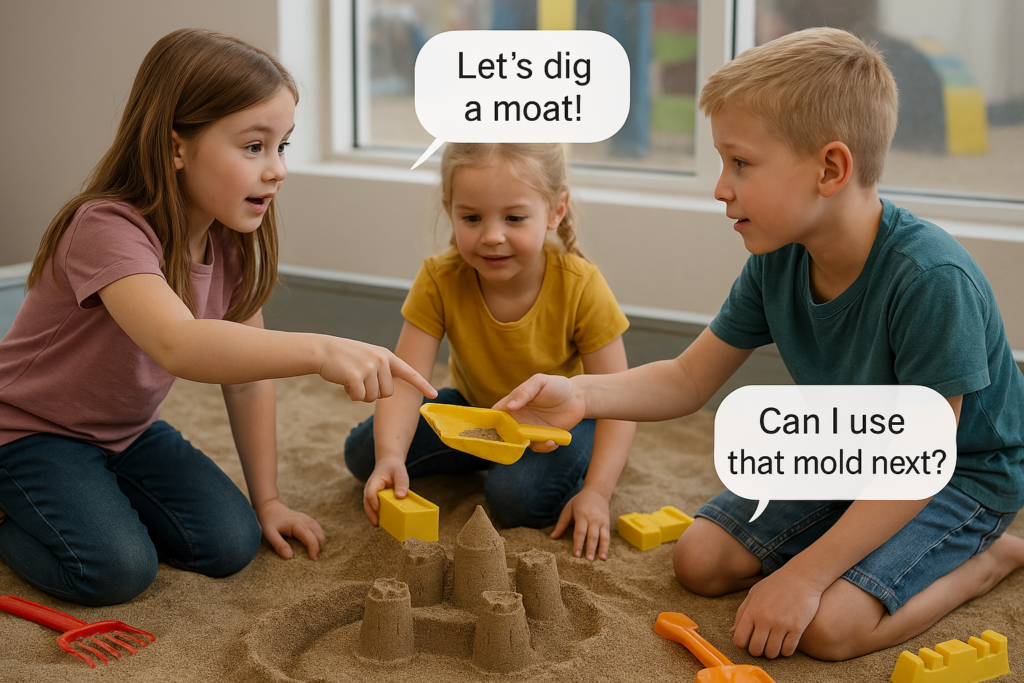
6. Builds Empathy & Social Awareness
Through play, children begin to comprehend the emotions and perspectives of others.
- Noticing when a friend feels left out
- Learning to include others in play
- Recognizing when someone is upset and adjusting behavior
These small moments lay the groundwork for empathy, which enables children to develop into kind and cooperative individuals.

Conclusion: Watch Social Skills Grow at Sandmagination!
Sandbox play isn’t just about digging and building—it’s a powerful tool for teaching cooperation, sharing, and teamwork. Through collaborative play, turn-taking, and communication, kids learn social skills that last a lifetime.
At Sandmagination, we provide a fun, welcoming space where kids can explore, interact, and grow with one another—one scoop of sand at a time!
Opening Soon! Stay tuned for more details about our grand opening!

